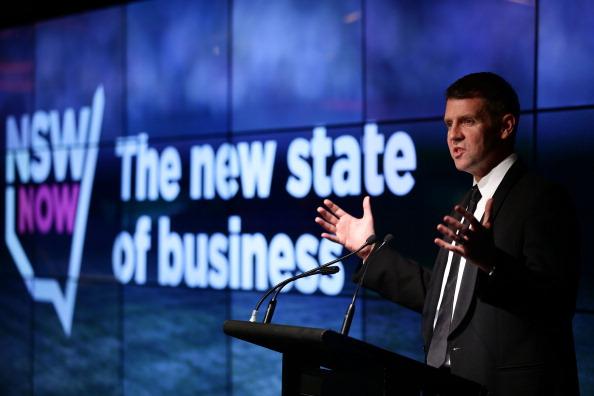SYDNEY—The New South Wales Parliament has passed changes to electoral funding laws aimed at stamping out corruption on Wednesday, Oct 22.
The changes proposed by Premier Mike Baird, were in response to allegations by the NSW Independent Commission against Corruption (ICAC) of widespread corruption in the 2011 election.
Minor parties were the winners Wednesday, after negotiations removed an earlier provision which would have restricted access to public funding.
In a system similar to that used in Federal elections, all parties and independents may now claim back campaign costs based on the number of votes they receive.
An earlier provision had linked those entitlements to a candidate’s successful election to the Legislative Assembly: if a party failed to win a seat in the Lower House, their entitlement would be reduced no matter how much campaign money had been spent. Under the new provision, a party will receive equal levels of funding provided they field at least ten candidates in the lower house.
Donation disclosure conditions were also changed under pressure from the Greens. Under the earlier proposals, parties were required to disclose donations from July this year up to February 2015, leaving a two month disclosure gap before the state election due March 28 next year.
Under the revised proposals, disclosure will be required up to March 1, 2015, leaving a smaller 28 days non-disclosure period.
Donations from registered third-party campaigners had also been decreased from $1.2 million to $250,000 under the original proposals. Widely seen as a restraint on donations from unions, the cap was returned to $1.2 million and also passed Wednesday.
Mr Baird’s original proposal to return caps on political donations to the 2011 limits of $5000 per party and $2000 per candidate were approved unchanged, as were increased penalties for breaking donation laws, including increased sentences from three to ten years.
The Greens had earlier welcomed Mr Baird’s proposals to increase penalties but believed the over all changes fell far short of expectations.
“While the Liberal/Nationals’ proposal is a step in the right direction, it fails to adequately limit political donations, improve disclosure and reduce overall spending on election campaigns,” said NSW Greens MP Jamie Parker in a statement.
Following approvals on Wednesday, Mr Parker conceded that his party had been unsuccessful in pushing for further restrictions on political donations.
“The Government and Labor blocked Greens amendments that would have made substantial reductions to the amount of political donations and election campaign spending,” he told Fairfax media.
Corruption Endemic
Mr Baird’s proposals were seen as an effort to address corrupt activities exposed by ICAC. They include receiving illegal electoral donations and wielding political influence for financial gain.
The allegations involve both major parties: to date eleven Liberal politicians have been forced to resign, step aside or move to the cross benches, including a federal assistant treasurer, a premier and a mayor; four former state Labor ministers and an MP have also fallen from grace.
According to politics professor John Warhust from the Australian National University, corruption in NSW appears to be so rampant it may now be intrinsic to the state’s political culture.
“It makes you wonder whether this way of doing things is now so common that newcomers fall into the trap of thinking, ”Well everyone does it and I'll do it as well,“ even though it must be contrary to everything they’ve stood for in their previous lives,” he told national broadcaster the ABC.
The NSW premier’s campaign law reforms came on the back of recommendations from an independent panel of experts selected by the premier to examine political donations. The resulting Interim Report, led by Dr Kerry Schott, also a victim of corrupt politics, stopped short of recommending full public funding of elections but did propose tighter political donation laws, harsher penalties for breaking those laws and more transparency around political donations.
Mr Baird said Wednesday’s measures would only apply to the 2015 state election. Long term reforms would be considered once his expert panels completes a final report, due in December this year.




